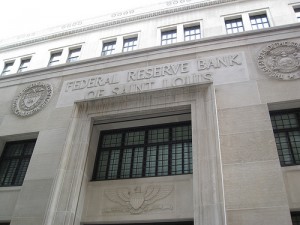Posted on 14 February 2011.
 The Obama administration offered three long-term overhauling options to the housing finance system in United States on Friday. The alternatives were written in the 31-page “white paper” that aims to unwind the dominance of Fannie Mae and Freddie Mac in the mortgage market.
The Obama administration offered three long-term overhauling options to the housing finance system in United States on Friday. The alternatives were written in the 31-page “white paper” that aims to unwind the dominance of Fannie Mae and Freddie Mac in the mortgage market.
The paper also consists of short-term propositions to gradually lessen the role of the government in the housing market so that private sectors can step in. By increasing the bills charged, it separately supports a slow unwind of the two firms.
The private market has been on its back for several years. The overhaul does not only try to level the field between the government and private sectors, but it also tries to reduce the large loan portfolio taken by Fannie and Freddie.
The most drastic of the three options proposed by the administration would be to privatize the housing finance giants. This leaves the market almost entirely to the private division.
It offers government insurance, as well as guarantees limited to the Federal Housing Administration. It also includes other programs for borrowers with low to middle income.
The second alternative includes adding a backstop mechanism within the government to be utilized only when there is a crisis. The third option involves creating government reinsurance for certain types of mortgage loans.
U.S House of Representatives newly authorized Republicans, as well as Democrats in the Senate have to reach an agreement regarding which option to follow.
Policymakers have purposely deferred decisions on what actions to perform about Fannie Mae and Freddie Marc as the housing market in United States remains fragile. The administration placed the pressure to the Republicans to perform the next move.
Posted in Featured News, Finance
Posted on 09 February 2011.
 Bank of America Corp. said on Thursday that it is separating its mortgage business into two divisions, with a new unit created particularly to manage and handle foreclosures, as well as discontinued loan products.
Bank of America Corp. said on Thursday that it is separating its mortgage business into two divisions, with a new unit created particularly to manage and handle foreclosures, as well as discontinued loan products.
The new Legacy Asset unit will be in charge of resolving issues that involve faulty paperwork causing Bank of America to defer foreclosures in all 50 states in October, the bank said.
Also, mortgage modifications and buyback claims on bad home loans sold to investors will be handled by the legacy unit. It will be headed by Terry Laughlin, who joined the bank as an executive in its mortgage unit handling loss mitigation strategies in July 2010.
The shift is the most recent in a series of management changes since Brian Moynihan took over as CEO in January 2010.
According to the bank’s year-end financial report, Bank of America Home Loans lost $8.92 billion in 2010 mainly because of the toxic loans it received when it purchased Countrywide Financial Corp. in 2008.
Countrywide reached a disaster when many of its borrowers could not repay mortgages with adjustable rates that did not require proof of income or down payment. Bank of America has also been plagued with lawsuits and buyback claims over the investment securities backed by those loans.
Bank of America Home Loans will carry on handling new loans, as well as the servicing of loans that are up-to-date. Barbara Desoer, who has led the unit since 2008, will continue running the unit.
The bank reported $306 billion new mortgages in 2010. According to regulatory filings, it had a mortgage servicing portfolio of $2.06 billion at the end of the year.
Posted in Featured News, Finance
Posted on 04 February 2011.
 France and Germany have reached an agreement to make further steps to enhance economic organization within the euro zone as part of a comprehensive anti-crisis package. the package will also ascertain that Europe’s bailout fund is now strengthened.
France and Germany have reached an agreement to make further steps to enhance economic organization within the euro zone as part of a comprehensive anti-crisis package. the package will also ascertain that Europe’s bailout fund is now strengthened.
Officials in Germany said on Wednesday that Chancellor Angela Merkel and French President Nicolas Sarkozy will give combined proposals to boost policy coordination in the 17-nation bloc on Friday at an EU summit in Brussels.
Sending the strongest signal yet, German Deputy Finance Minister said that Berlin is ready to give new powers to the euro zone’s rescue fund to swap for fiscal discipline commitments by other members.
Asmussen told at a conference in Frankfurt that they will do all that is required to keep the stability of the entire euro zone and that might include changing the scope and efficiency of the EFSF. He was referring to the 440 billion euro European Financial Stability Facility.
The final agreement on the new scheme for battling the euro zone’s sovereign debt crisis is not yet expected before the March 24-25 summit.
However, markets are already welcoming signs that leaders in Europe are zeroing in on an agreement to stop contagion from Greece and Ireland to susceptible countries like Portugal and Spain.
In the past three weeks, the euro has gained 7 percent on the dollar to trade over $1.38 for the first time since early November. The Spanish and Greek risk premiums on its 10-year bonds are still on three-month lows.
The spreads between Irish Bonds and German benchmarks also narrowed on Wednesday. But, it was a relief that a ratings downgrade from Standard & Poor’s was not profound.
Posted in Featured News, Finance
Posted on 02 February 2011.
 The Federal Reserve informed on Monday that banks modestly loosened their lending standards for particular business loans over the past three months, but they still kept tight standards for consumer loans.
The Federal Reserve informed on Monday that banks modestly loosened their lending standards for particular business loans over the past three months, but they still kept tight standards for consumer loans.
The Fed said that 12 percent of banks that responded to their recent survey had eased their standards to some extend on industrial and commercial loans. But, the survey discovered little change in the firm lending standards forced on consumer loans since the housing market crumpled.
With regards to the business loans, banks said the modest easing in standards portrayed a less uncertain economic outlook and raised competition from other banks to make business loans.
The survey run by Fed covered a total of 57 domestic banks that included all of the nation’s biggest institution. It represented the bulk of lending activity in the entire country.
Forty-nine banks said their policies on commercial and industrial lending were unchanged. One bank said it had slightly tightened their standards while seven banks, or 12 percent, said they had somewhat eased their lending standards.
Many small businesses have complained that the $700 billion financial bailout the government sponsored did not succeed in protecting them from being cut off from their normal lines of bank credit.
The bailout program was supposed to provide sufficient capital for banks to allow them to continue lending even as the country fell into recession.
But banks that were faced with increasing loan losses remarkably tightened their standards. That has dragged the overall economy as it caused depression on consumers, as well as business borrowing.
Banks had firmly tightened their lending standards for business and consumer loans during the peak of financial crisis in 2008. Even with loosening of loan standards for the past year, it is still much difficult to get a loan than before the crisis.
Posted in Finance
Posted on 25 January 2011.
 The euro wandered back from two-month highs in opposition to dollar on Monday as traders reported recent profits amid the evidence that the eurozone economy has commenced the year at a moderate pace towards recovery.
The euro wandered back from two-month highs in opposition to dollar on Monday as traders reported recent profits amid the evidence that the eurozone economy has commenced the year at a moderate pace towards recovery.
Stocks changed narrowly in front of a new batch of earnings, particularly out of the United States despite the expectations that China will shortly tighten monetary policy to put a stop on rising inflationary pressures.
However, the most significant developments in the market are centered on the euro currency that recently reached $1.3646, which is its highest rate since November 22. The increase proved to be a sign for investors to reserve some recent gains. Two weeks ago, the euro was trading at $1.2875, which is its four-month low.
The euro’s increase is a result mainly of the declining concern over Europe’s debt crisis despite the signals from policymakers that a widespread agreement is currently discussed which will help raise their firefighting powers, as well as financial muscle.
According to David Bulk, markets analyst at BGC Partners, bonds have responded positively as the EU continues to try to adopt a more united front towards sovereign debt issues. The data released on Monday further proves that the entire eurozone economy continues to grow at a reasonably steady pace.
But, while the headline figures represent that the eurozone economy is in a fairly good condition, they cover wide differences between countries. Germany, which is Europe’s biggest economy, continues to power ahead while other countries such as Ireland, Greece and Portugal lag behind as their governments continue painful sternness programs to put their public finances in good shape.
Posted in Finance
Posted on 24 January 2011.
 Following a mid-week quiver, the much awaited pullback is finally on its way. However, the market is still showing signs of some power left if incomes will come in at higher expectations.
Following a mid-week quiver, the much awaited pullback is finally on its way. However, the market is still showing signs of some power left if incomes will come in at higher expectations.
Some huge energy companies like Chevron Corp, as well as ConocPhillips will be reporting their outcomes next week. Outlooks have been all over the sector, the 3rd biggest in the S&P 500, giving them a lot of room for frustration.
Analysts have increased expectations as stocks shot up the latter part of last year on the signs of an improving economy. The S&P 500 income estimate for the latest quarter were amended up 1% for the last sixty days, as written on data acquired from Starmine.
Optimistic revisions were hardly focused on the energy, technology, as well as material divisions. A 5.7 percent raise was made in the estimates of materials, 4.8 percent in energy, and 2.3 percent in technology, Starmine reported.
Obviously, the three areas together with financials took the force of selling throughout the week. Material shares have decreased the most, down by 3.3 percent over the week.
U.S. market strategist, Marco Pado of Cantor Fitzgerald & Co. in San Francisco states that declines in top sectors are a complete sign of income taking.
He said they are looking for a 5% to 7% pullback range and they think they just started.
A pullback that has a magnitude like that would move the S&P 500 to decrease 1,204 based on Tuesday’s closing price. It is still within their uptrend channel since March 2009 lows, which numerous technical analysts perceive as a strong support for the market.
Posted in Finance
Posted on 21 January 2011.
 AIG selected Bank of America Corp, Golden Sachs Group Inc, Deutsche Bank AG and JPMorgan Chase & Co to manage the sale of the government’s 92 percent stake in the insurer, two people knowledgeable with the circumstance said on Tuesday.
AIG selected Bank of America Corp, Golden Sachs Group Inc, Deutsche Bank AG and JPMorgan Chase & Co to manage the sale of the government’s 92 percent stake in the insurer, two people knowledgeable with the circumstance said on Tuesday.
American International Group Inc and the government conducted a “bake off” in New York on Thursday. They hosted bankers and CEOs from ten of the largest firms in the world to pitch for the right to manage the deal.
Two of the three joint lead arrangers on AIG’s $4.3 billion bank credit lines were Bank of America and the JPMorgan. Meanwhile, AIG and Goldman have a strong relationship. Deutsche Bank’s connection is somewhat unclear though AIG is likely to pitch investors assertively for a huge, global shareholder base.
The winning banks are likely to divide a fee that is smaller than the 75 basis points of the offering amount which the government paid the other year for the first public offering of General Motors Co (GM.N). The fee might be nearer to 50 basis points.
Considerably smaller than the normal fee for a secondary offering of this size, the banks are still anticipated to make up for the lost revenue with the reputation of handling a marquee deal and the chance at future business with AIG.
Sources said the process is expected to begin with a secondary offering in May that could be one of the 10 biggest in history. The government is anticipated to sell a minimum of $15 billion of its shares in AIG, and the company is expected to sell a further $3 billion on top of that.
Posted in Featured News, Finance
Posted on 20 January 2011.
 A sharp drop in bond trading revenue forced Citigroup Inc. to move their fourth-quarter profit far below their expected figures. This placed doubts over the claim of Chief Executive Vikram Pandit that the bank had turned the corner.
A sharp drop in bond trading revenue forced Citigroup Inc. to move their fourth-quarter profit far below their expected figures. This placed doubts over the claim of Chief Executive Vikram Pandit that the bank had turned the corner.
The bank’s first full-year profit since 2007 showed poor fixed income results that left Pandit and other top executives faced with numerous questions about what had probably gone wrong at the bank.
The results showed 4 cents a share or 50 percent less than the amount expected by analysts. This stirred worries that the bank has yet to resolve the operational weaknesses that have plagued it for several years.
The fixed-income revenue of the bank fell 58 percent from the third quarter as compared to a 7.9 percent decrease at major rival JPMorgan Chase & Co. The banks’ contradicting trading results made several investors unsure of what to expect while other financial firms report their profits this week.
Trading is an unstable area throughout the banking industry, said Lee Kyriacou, a former banker and a partner at the consulting firm Novantas.
Trading revenues were hit in some parts by an adjustment in accounting rooting from a market perception that Citi debt was less risky. However, the results stressed fundamental weaknesses as well.
According to Chief Financial Officer John Gerspach in a report during a conference call, this was one of the weaker quarters for trading. He acknowledged Citi’s investment back has also experienced difficulty in other areas and that it fell to eighth place from fourth in Thomson Reuter’s rankings.
Citigroup reported a net profit of $1.3 billion or 4 cents per share for the fourth quarter. The EPS was 50 percent below the expectations of analysts, Thomson Reuters said.
Posted in Finance
Posted on 17 January 2011.
 The Afghan government has forced taxes on U.S. contractors appointed in the country, threatening new conflicts with the United States, the Washington Post reported.
The Afghan government has forced taxes on U.S. contractors appointed in the country, threatening new conflicts with the United States, the Washington Post reported.
The newspaper stressed, while citing unnamed Afghan and US officials, that taxation of US government assistance is banned by US law, as well as by a number of bilateral agreements between Afghanistan and United States.
However, the report said contractors have lately received tax bills for work done under the US government programs.
Reconstruction is a key component in an anti-rebellion effort led by the United States, which aims to even out the volatile south and east of Afghanistan as part of helping Afghan farmers and improving local government.
US Vice President Joe Biden pointed out on his second day surprise visit tn the war-torn nation last week that his country’s troops could remain after 2014 if Afghans want them to.
Around 97,000 troops from the United States are serving in Afghanistan as part of an international force of some 140,000.
The contractors have made an appeal to the Defense and State Departments to clarify the matter and according to the Washington Post, they have been told to ignore the bills and stand up for their rights.
However, the paper reported that Afghan government has already began sending overdue tax bills and has threatened some US companies with possible arrest, loss of licenses and confiscation of aid goods.
Afghan Finance Minister Omar Zakhilwal informed The Post through a text message that whatever is not exempted by law and treaties will not be exempted and that Afghanistan is serious against tax evasion.
Posted in Finance
Posted on 14 January 2011.
 Rates on fixed mortgages dropped for the second straight week at the same time Treasury yields are falling.
Rates on fixed mortgages dropped for the second straight week at the same time Treasury yields are falling.
The average rate on the 30-year mortgage sank to 4.71 percent this week from 4.77 percent the preceding week, Freddie Mac said on Thursday. In November, it had reached its lowest rate of 4.17 percent in 40 years.
The 15-year loan average rate dropped to 4.08 percent from 4.13 percent. It hit also hit 3.57 percent in November, the lowest rate it has ever recorded since 1991.
After the December employment report showed weaker than expected, Treasury yields dropped which moved investors to buy safer Treasury bonds. This increased its prices and lowered the yields. The 10-year Treasury note shows mortgage rates tend to trail behind the yields.
After the 40-year low in November, rates have been rising. However, investors moved their money out of Treasury and into stocks as they anticipated faster economic growth and higher inflation. Yields are apt to increase along with inflation fears.
The latest drop in rates have convinced some borrowers to refinance, but upcoming buyers remain cautious. On Wednesday, the Mortgage Bankers Association said that the number of homeowners looking to refinance increased last week. Yet, the number of people applying for a purchase mortgage fell a week ago.
Higher rates are just another obstacle that struggling housing market face. High unemployment rate, increasing foreclosures, and falling home prices are the other factors that are slowing down the market’s recovery.
Posted in Finance
 The Obama administration offered three long-term overhauling options to the housing finance system in United States on Friday. The alternatives were written in the 31-page “white paper” that aims to unwind the dominance of Fannie Mae and Freddie Mac in the mortgage market.
The Obama administration offered three long-term overhauling options to the housing finance system in United States on Friday. The alternatives were written in the 31-page “white paper” that aims to unwind the dominance of Fannie Mae and Freddie Mac in the mortgage market.
 Bank of America Corp. said on Thursday that it is separating its mortgage business into two divisions, with a new unit created particularly to manage and handle foreclosures, as well as discontinued loan products.
Bank of America Corp. said on Thursday that it is separating its mortgage business into two divisions, with a new unit created particularly to manage and handle foreclosures, as well as discontinued loan products. France and Germany have reached an agreement to make further steps to enhance economic organization within the euro zone as part of a comprehensive anti-crisis package. the package will also ascertain that Europe’s bailout fund is now strengthened.
France and Germany have reached an agreement to make further steps to enhance economic organization within the euro zone as part of a comprehensive anti-crisis package. the package will also ascertain that Europe’s bailout fund is now strengthened. The Federal Reserve informed on Monday that banks modestly loosened their lending standards for particular business loans over the past three months, but they still kept tight standards for consumer loans.
The Federal Reserve informed on Monday that banks modestly loosened their lending standards for particular business loans over the past three months, but they still kept tight standards for consumer loans. The euro wandered back from two-month highs in opposition to dollar on Monday as traders reported recent profits amid the evidence that the eurozone economy has commenced the year at a moderate pace towards recovery.
The euro wandered back from two-month highs in opposition to dollar on Monday as traders reported recent profits amid the evidence that the eurozone economy has commenced the year at a moderate pace towards recovery. Following a mid-week quiver, the much awaited pullback is finally on its way. However, the market is still showing signs of some power left if incomes will come in at higher expectations.
Following a mid-week quiver, the much awaited pullback is finally on its way. However, the market is still showing signs of some power left if incomes will come in at higher expectations. AIG selected Bank of America Corp, Golden Sachs Group Inc, Deutsche Bank AG and JPMorgan Chase & Co to manage the sale of the government’s 92 percent stake in the insurer, two people knowledgeable with the circumstance said on Tuesday.
AIG selected Bank of America Corp, Golden Sachs Group Inc, Deutsche Bank AG and JPMorgan Chase & Co to manage the sale of the government’s 92 percent stake in the insurer, two people knowledgeable with the circumstance said on Tuesday. A sharp drop in bond trading revenue forced Citigroup Inc. to move their fourth-quarter profit far below their expected figures. This placed doubts over the claim of Chief Executive Vikram Pandit that the bank had turned the corner.
A sharp drop in bond trading revenue forced Citigroup Inc. to move their fourth-quarter profit far below their expected figures. This placed doubts over the claim of Chief Executive Vikram Pandit that the bank had turned the corner. The Afghan government has forced taxes on U.S. contractors appointed in the country, threatening new conflicts with the United States, the Washington Post reported.
The Afghan government has forced taxes on U.S. contractors appointed in the country, threatening new conflicts with the United States, the Washington Post reported. Rates on fixed mortgages dropped for the second straight week at the same time Treasury yields are falling.
Rates on fixed mortgages dropped for the second straight week at the same time Treasury yields are falling.